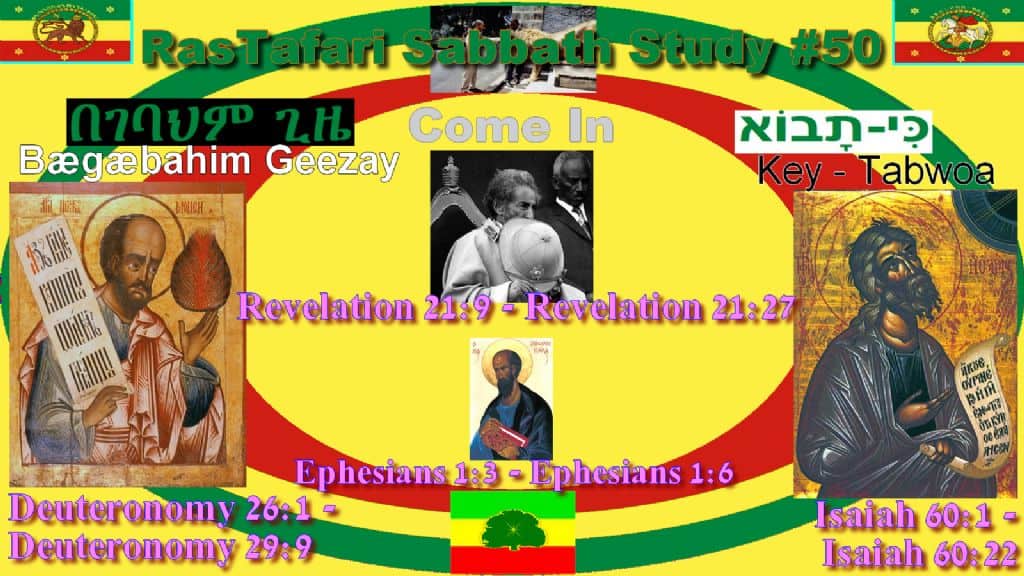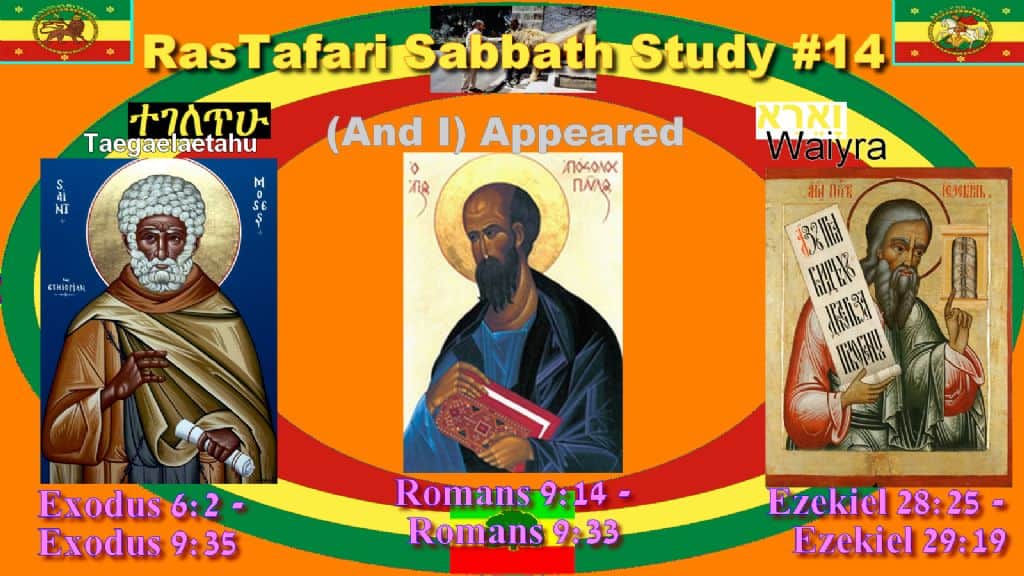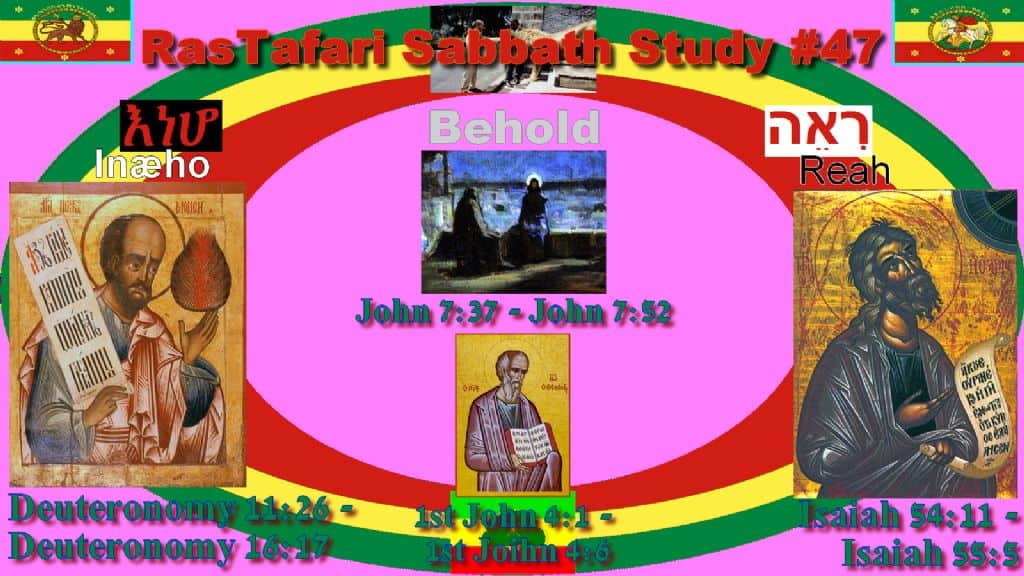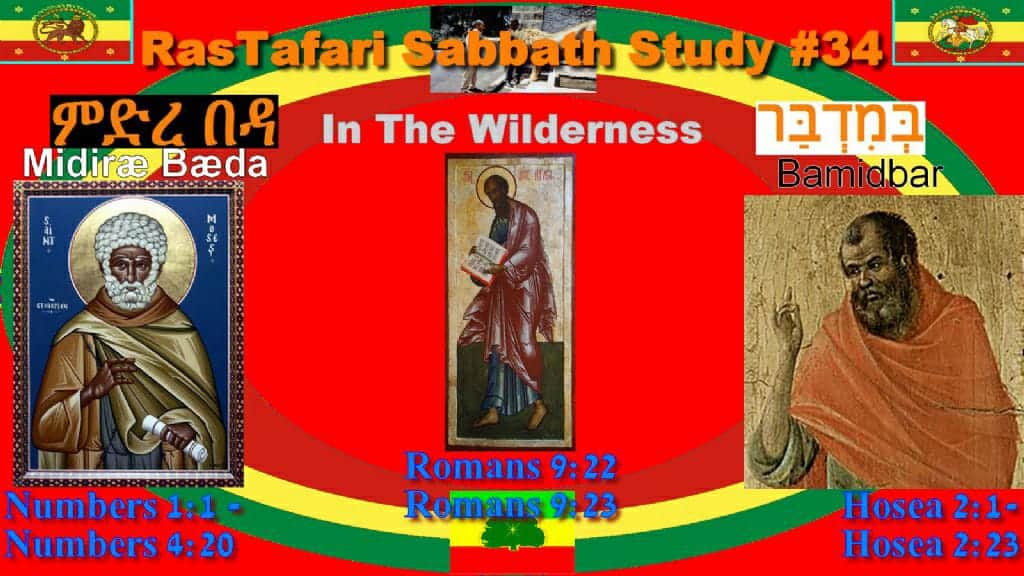This Week's Portion #15
Bo | בוא | "Enter!/Come" ግባ | G’bba [Gibba]
*For a PDF version of All the Torah Portions Schedule, click here to download!
2. Prophets Reading
Jeremiah 46:13-28
3. New Testament Reading
Luke 22:7-30; 1 Cor 11:20-34
Portion Outline - TORAH
- Exodus 10:1 The Eighth Plague: | Locusts
- Exodus 10:21 The Ninth Plague: | Darkness
- Exodus 11:1 | Warning of the Final Plague
- Exodus 12:1 | The First Passover Instituted
- Exodus 12:29 The Tenth Plague: | Death of the Firstborn
- Exodus 12:33 The Exodus: | From Rameses to Succoth
- Exodus 12:43 | Directions for the Passover
- Exodus 13:3 | The Festival of Unleavened Bread
- Exodus 13:11 | The Consecration of the Firstborn
Portion Outline - PROPHETS
- Jer 46:13 | Babylonia Will Strike Egypt
- Jer 46:27 | God Will Save Israel
Portion Study Book Download & Summary
 SHEMOT Hebrew Book of Exodus - Torah Portion Vol.2 (FREE PDF)
SHEMOT Hebrew Book of Exodus - Torah Portion Vol.2 (FREE PDF)
The fifteenth reading from the Torah is named Bo (בוא), which means “Come.” The title comes from the first words of the first verse of the reading, which say, “Then the LORD said to Moses, ‘[Come] to Pharaoh, for I have hardened his heart” (Exodus 10:1). The portion begins by concluding the narrative of the ten plagues, the tenth of which is the slaying of the firstborn. To avoid the plague, the Israelites are given the instructions for the Passover sacrifice and the laws of the Feast of Unleavened Bread. Pharaoh finally consents to let Israel go, and they leave Egypt.
Portion Commentary
No Uncircumcised Person
Thought for the Week:
The rituals of the Passover seder and the Feast of Unleavened Bread are designed to inspire curiosity. The children at the table, observing the unusual rites and foods, are supposed to be inspired to ask, “Why is this night different from all other nights?” The purpose of Passover is to transmit faith to the next generation.
Commentary:
But if a stranger sojourns with you, and celebrates the Passover to the LORD, let all his males be circumcised, and then let him come near to celebrate it; and he shall be like a native of the land. But no uncircumcised person may eat of it. (Exodus 12:48)
The Torah clearly states that no uncircumcised person may eat of the Passover. What is more, it says that if a stranger (i.e., a Gentile) wants to celebrate the Passover, he has to be circumcised first. So how can a Gentile keep a Passover seder?
When we speak of Passover, we generally mean the entire Feast of Unleavened Bread. In the Torah, the term Passover (pesach, פםח) applies only to the sacrifice of the Passover lamb and its consumption. Exodus 12:48 prohibits an uncircumcised person from making a Passover sacrifice and eating a Passover lamb. The New American Standard version makes it sound like an uncircumcised person is prohibited from celebrating Passover in general, but the Hebrew makes it clear that such a person is only prohibited from sacrificing the lamb. This law applies to both Jews and Gentiles:
The same law shall apply to the native as to the stranger who sojourns among you. (Exodus 12:49)
An uncircumcised Jew and an uncircumcised Gentile are both forbidden from sacrificing or eating a Passover lamb. The Torah does not forbid them from keeping the Feast of Unleavened Bread, though. The law leaves them free to participate in the seder meal and keep the seven days of Unleavened Bread.
In the days of the apostles, the Gentile believers were free to remain uncircumcised, but if they wanted to make a Passover sacrifice, they would have been required to first undergo circumcision and conversion. For most Gentile believers, this was a non-issue. They lived far from Jerusalem. Neither they nor the Jewish community around them had access to the Temple or sacrifices. Therefore, they kept the Passover, the seder and the seven days of Unleavened Bread like the rest of Diaspora Judaism—without a lamb. The only thing prohibited for them was the sacrificial lamb itself. 1
This opinion may be derived from rabbinic sources as well. According to the Talmud in b.Pesachim 96a, an uncircumcised non-Jew is allowed to keep the seder and the Feast of Unleavened Bread. Only regarding the actual lamb sacrifice is he banned.
In today’s world, the entire question is moot. Without a Temple, there can be no such thing as a real Passover lamb sacrifice. (That is why lamb is no longer supposed to be served at the Passover seder meal.)
This means that uncircumcised believers, whether they are Jewish or Gentile, are welcome at the seder table. They should partake of the matzah, the bitter herbs, the four cups and the seven days of the Feast of Unleavened Bread with a glad heart. We can all share in and rejoice in our common Passover Lamb, Yeshua.
Middot U’Mitzvot (Character and Deeds)
Leaving the Old Culture Behind
The Apostle Paul says, “Clean out the old leaven so that you may be a new lump, just as you are in fact unleavened. For Christ our Passover also has been sacrificed. Therefore let us celebrate the feast, not with old leaven, nor with the leaven of malice and wickedness, but with the unleavened bread of sincerity and truth” (1 Corinthians 5:7–8). The old starter-dough leaven represents our old way of life. It is sin, godlessness, bad company, bad habits and all the things that taint our lives. Like an old culture of leavened starter dough, those things continue to leaven our lives from day to day, conforming us to our past. Paul urges us to make a clean break with the old culture and to start over as a new batch, like unleavened bread.
When the children of Israel left Egypt, they were leaving behind their old culture. While in Egypt they had absorbed much of the wickedness and idolatry of Egyptian society. The unleavened bread symbolized a new beginning. They were starting over.
In a spiritual sense, we leave Egypt when Messiah saves us. That’s what it means to be born again. It is a matter of starting over. When we become believers, we are supposed to die to our old way of life and begin life again as new creatures. We have to leave our old ways behind us.
Addiction counselors warn recovering addicts about falling back into old patterns. The recovering addict is at greatest risk when he spends time with old friends or revisits familiar hang-outs. To successfully overcome his addiction, it is important to break with the past, carve out new patterns of behavior and develop new, healthy habits. It is the same for all of us.
The leaven in our lives comes in a variety of disguises. It may be certain entertainments, amusements, vices, habits or social circles. Paul suggests that it may lie in the wicked and malicious attitudes of our hearts. Passover is an opportune time to break with our past and start over as new creatures in Messiah. Passover is an annual reminder that we must leave the old culture behind. Every Passover is a chance to start over. At Passover we remember that we have left our spiritual Egypt. We are free from the past, and we need to set aside those things in our lives that continue to enslave us. After all, starting over is what it means to be born again.

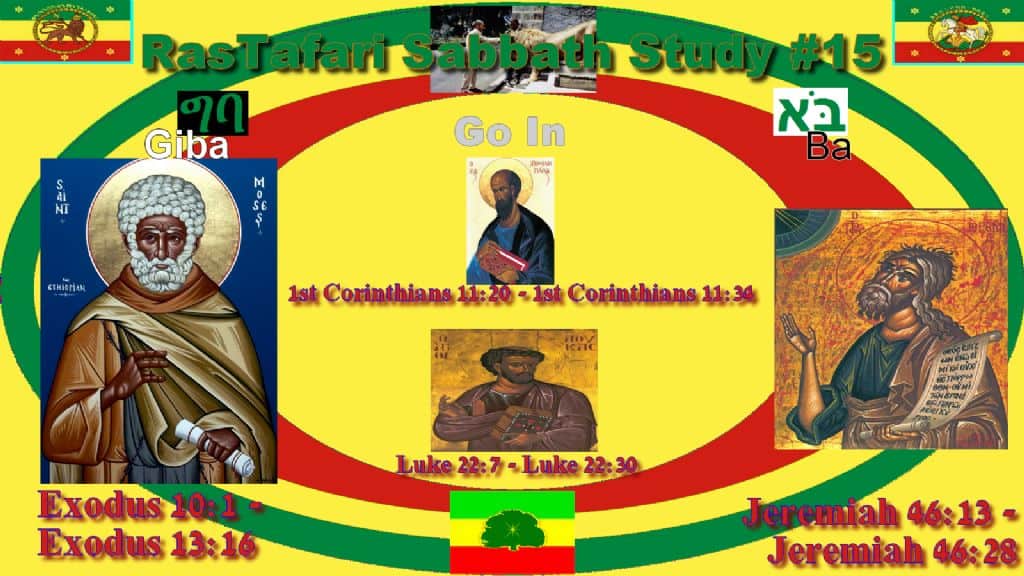
![Bo | בוא | "Enter!/Come" ግባ | G’bba [Gibba] Bo | בוא | "Enter!/Come" ግባ | G’bba [Gibba]](https://rastafarigroundation.org/wp-content/uploads/2019/03/Discipleship-Radi0-RasTafari-Bible-Readings-15_.jpg)
![Bo | בוא | "Enter!/Come" ግባ | G’bba [Gibba] Bo | בוא | "Enter!/Come" ግባ | G’bba [Gibba]](https://rastafarigroundation.org/wp-content/uploads/2019/03/Discipleship-Radi0-RasTafari-Bible-Readings-15_2_.jpg)
![Bo | בוא | "Enter!/Come" ግባ | G’bba [Gibba] Bo | בוא | "Enter!/Come" ግባ | G’bba [Gibba]](https://rastafarigroundation.org/wp-content/uploads/2019/03/Discipleship-Radi0-RasTafari-Bible-Readings-15_2.jpg)
